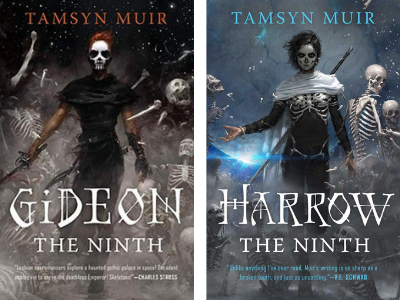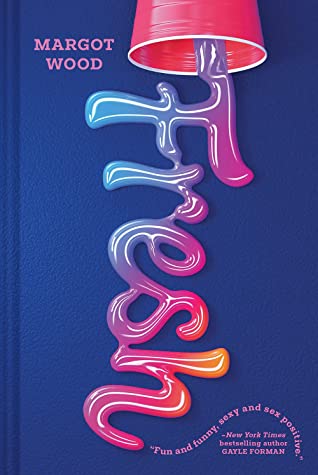Buy this from Bookshop.org to support local bookstores and the Lesbrary! If reading Here We Go Again by Alison Cochrun and Late Bloomer this year has taught me anything, it’s that I have a type in romance novels: two neurodivergent sapphics in love. When Opal wins the lottery, she’s overwhelmed by everyone in her lifeRead More
Ted Lasso But Make It Sapphic: Cleat Cute by Meryl Wilsner
Bookshop.org Affiliate Link “Calling Phoebe loud and obnoxious and gay ignores all her layers and contradictions. That’s Grace’s issue with fame—people take you at face value. Nobody bothers to look for the person beneath the brand.” ⚠️ Spoilers ahead. Book contains graphic sex scenes. ⚠️ Phoebe Matthews is ready to take her first season as aRead More
Sam reviews Nona the Ninth by Tamsyn Muir
Amazon Affiliate Link | Bookshop.org Affiliate Link ʼTis at last that most frightful and morbid of months, a spooky season of ghosts and ghouls, the danse macabre we raise our jaded bones to join but once each year—October is here! And not a moment too soon, because it’s time to check in on everyone’s favoriteRead More
Sam reviews Gideon the Ninth & Harrow the Ninth by Tamsyn Muir
Amazon Affiliate Link | Bookshop.org Affiliate Link For Pride this month, I’m going to treat myself a little bit—I would like to talk about Gideon the Ninth and Harrow the Ninth, the first half of the Locked Tomb series by Tamsyn Muir (the half that’s been released, at time of writing). Now, if you likeRead More
Danika reviews Fresh by Margot Wood
Amazon Affiliate Link | Bookshop.org Affiliate Link I picked up Fresh when I was in a bit of a reading slump, and in the first few pages, I wasn’t sure what to think of it. It definitely has a distinct voice. It’s a first person point of view, and it sure sounds like a collegeRead More
Maddison reviews Ascension by Jacqueline Koyanagi
Ascension follows Alana Quick, a sky surgeon AKA starship mechanic, who stows away on the Tangled Axon when the crew comes in search of the services of her sister, Nova. Alana has a chronic and debilitating illness that requires expensive medication and her ship repair yard barely brings enough in to cover her expenses, soRead More

